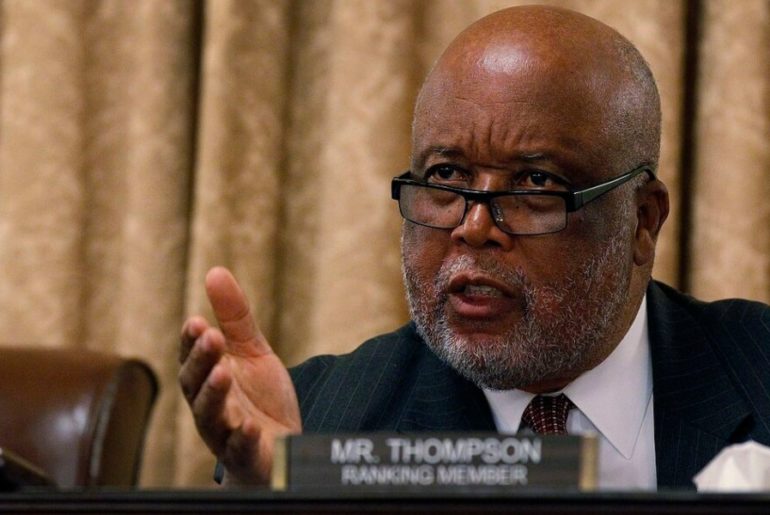On Thursday, November 7th, the Committee on Homeland Security, chaired by Congressman Bennie G. Thompson (D-MS), held a public field hearing in Holmes Hall Auditorium, Tougaloo College, (Mississippi) regarding the August 7th Immigration and Customs Enforcement (ICE) workplace raids. This audience was attended by representatives of social organizations, community and U.S. Immigration and Customs Enforcement.
In this hearing, they exposed the impacts to the Mississippi community after the immigration raids.
A sad day for Mississippi immigrants
On August 7, ICE conducted a huge migration raid on 7 chicken processing plants – Koch Foods, PH Food, Pearl River Foods, Peco Foods, and A&B – which have their headquarters in the Mississippi communities of Bay Springs, Carthage, Canton, Morton, Pelahatchie, and Sebastapol. . The raids were touted as “the largest workplace sting in more than a decade and probably the largest ever for a single state.”
That day 600 federal agents arrested 680 workers without documents. Most of them were Mexicans and Guatemalans. Among Guatemalans, there were people from indigenous communities who did not speak Spanish.
This raid was heavily criticized and described as cruel and inhumane. Chairman Thompson noted in his statement announcing the hearing:
Three months later, we still don’t have a proper explanation of why the federal government planned and executed these raids without accounting for the impact on children, families, and the community. Because of this [ICE] negligence, dozens of children went home after their first day of school to find that one or both of their parents were nowhere to be found.
Chairman Thompson explained that the committee was at that meeting to examine and learn about the effects of the raid on families, children, and communities and what will be done for those who are still suffering the consequences of this action. One of the main concerns was that ICE did not consider that thousands of the children would be separated from both parents. It was the first day of school and in many cases “there was no one to pick up or no one waiting for them at home.”
The representatives of the panel asked: what will happen to the children if both parents are deported? Will they be returned to a country they don’t know and don’t speak the same language? Or will they grow up without their parents? The committee hearing the witnesses was made up of Congresswoman Sheila Jackson Lee (D-TX) Texas, Congressman Al Green(D-TX), and Congressman Steve Cohen (D-TN).
Professor Cliff Johnson, Director, MacArthur Justice Center, University of Mississippi School of Law, panelist, said that in 27 years he has represented a thousand clients, and nothing hit him as much as what happened. “Everyone knows the people of his community and knows that they are not a threat to the community and US security…some of the people being prosecuted are young mothers with a third-grade education or less.”
Father Odele Medina,St. Anne Catholic Church, in Carthage said the trauma of these children is too painful and they don’t understand why their parents have been arrested.
Hon. Constance Slaughter-Harvey, President of the Board, Legacy Education and Empowerment Foundation, mentions that the manner that this raid was conducted was “appalling and inhumane to say the least. The poor workers were treated as terrorists and animals.” Her principal concern was what was happening to the children and that the effort for terrorizing certain citizens has been successful.
Lorena Quiroz Lewis,Lead Organizer, Working Together Mississippi and Mississippi Immigrant Coalition, said language barriers were a big problem. Among the detainees were people who only spoke Mam (an indigenous dialect of Guatemala). In addition, the psychological impact on children has been terrible and the mental health system is not able to handle these cases because there is very limited capacity and there is only one bilingual licensed trauma counselor in the entire state.
The committee mentioned that this one-day raid had 600 federal agents and cost $478,000. “We are spending time arresting these good people and locking them up in our jails when we have real problems.” There is no exact number of affected children, but the committee estimates that it exceeds 1500.
For his part, Jere Miles Special Agent in Charge, Homeland Security Investigations, Immigration and Customs Enforcement, Department of Homeland Security said that in August, HSI executed eight federal criminal search warrants and seven federal civil search warrants as a result of an 18-month investigation against the companies. Why schools or other community representatives were not notified, he responded that, “We don’t have a policy that says that we are obligated to notify anyone”… and that “we didn’t know it was the first day of school.” He also mentioned that they do not have the number of children that were not reunited with the parents. “We planned to arrest people that are violating federal law…as with anybody that’s arrested in the United States.” He confirmed that no employer has been arrested.
Hon. Mike Lee,Sheriff of Scott County said that of the 28,000 residents, according to the census, 11.5% of the citizens identify as Latinos and they constitute a large workforce in the county. Currently in jail they have 125 inmates and only 3 identify as Latino.
Despite the separation of children from their parents and impact of these raids on the immigrant communities, to this day, there are still no answers.

